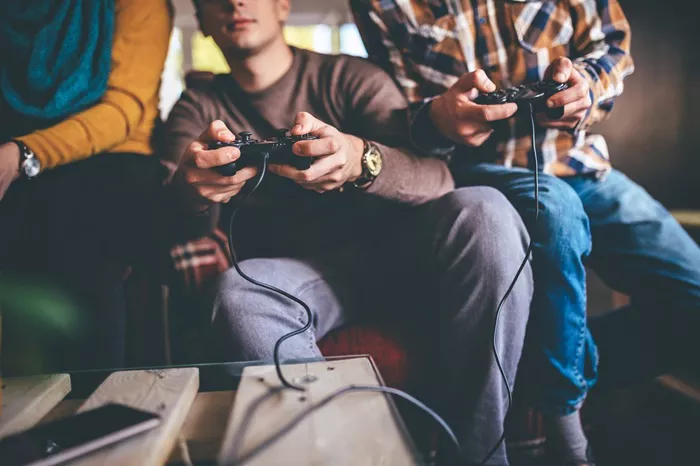Gaming has become a prevalent form of entertainment worldwide, offering immersive experiences that engage millions of players daily. While gaming can be a healthy recreational activity, for some individuals, it can lead to problematic behaviors that significantly impact their lives. This condition, known as gaming disorder, has been recognized by the World Health Organization (WHO) and American Psychiatric Association (APA). In this comprehensive article, we will explore the symptoms of gaming disorder, its impact on individuals, and the steps for diagnosis and treatment.
Defining Gaming Disorder
What is Gaming Disorder?
Gaming disorder, also referred to as internet gaming disorder, is characterized by a pattern of persistent or recurrent gaming behavior that becomes so extensive that it takes precedence over other interests and activities, leading to significant impairment or distress. The disorder can manifest through both online and offline gaming activities.
Recognition by Health Authorities
In 2018, the WHO included gaming disorder in the International Classification of Diseases (ICD-11), defining it as a pattern of gaming behavior with significant impairment in personal, social, educational, or occupational functioning. The APA has also recognized internet gaming disorder in the Diagnostic and Statistical Manual of Mental Disorders (DSM-5) as a condition warranting more research.
Symptoms of Gaming Disorder
Gaming disorder is identified by a range of symptoms that affect various aspects of an individual’s life. These symptoms can be broadly categorized into behavioral, emotional, and physical domains.
Behavioral Symptoms
1. Preoccupation with Gaming
Individuals with gaming disorder often exhibit an obsessive focus on gaming. They may constantly think about previous gaming activities or plan future sessions, even when not actively playing. This preoccupation can overshadow other important life activities and responsibilities.
2. Withdrawal Symptoms
When not gaming, individuals may experience withdrawal symptoms, such as irritability, anxiety, restlessness, or sadness. These symptoms arise due to the reduced stimulation and satisfaction derived from other activities compared to gaming.
3. Tolerance
Similar to substance addiction, individuals with gaming disorder may need to spend increasing amounts of time gaming to achieve the same level of excitement or pleasure. This escalating need can lead to extended gaming sessions, often at the expense of sleep, physical health, and other responsibilities.
4. Unsuccessful Attempts to Control Gaming
People with gaming disorder may make repeated unsuccessful efforts to control, reduce, or stop gaming altogether. Despite recognizing the negative impact of their behavior, they struggle to regain control over their gaming habits.
5. Loss of Interest in Other Activities
A hallmark of gaming disorder is the diminished interest or participation in activities previously enjoyed. Individuals may neglect hobbies, social interactions, and educational or occupational responsibilities in favor of gaming.
6. Continued Gaming Despite Problems
Despite experiencing negative consequences, such as academic decline, strained relationships, or financial issues, individuals with gaming disorder continue to engage in gaming. They may rationalize their behavior or downplay its impact on their lives.
Emotional Symptoms
1. Mood Changes
Individuals with gaming disorder may experience frequent mood changes, including euphoria during gaming sessions and irritability or depression when unable to play. Gaming becomes a primary source of emotional regulation, leading to an unhealthy dependency.
2. Guilt and Shame
As the disorder progresses, individuals may feel guilt or shame about their gaming habits. They may recognize the detrimental effects of their behavior but feel powerless to change it, leading to feelings of self-blame and decreased self-esteem.
3. Anxiety and Depression
Gaming disorder is often associated with increased levels of anxiety and depression. The isolation and neglect of real-life responsibilities can exacerbate these conditions, creating a vicious cycle of emotional distress and gaming dependency.
Physical Symptoms
1. Sleep Disturbances
Extended gaming sessions, particularly late into the night, can disrupt sleep patterns. Individuals with gaming disorder may experience insomnia, irregular sleep schedules, and chronic sleep deprivation, leading to fatigue and decreased cognitive function.
2. Poor Physical Health
The sedentary nature of excessive gaming can contribute to poor physical health. Individuals may experience weight gain, musculoskeletal problems, and a lack of physical fitness due to prolonged periods of inactivity.
3. Eye Strain and Headaches
Extended screen time can lead to digital eye strain, characterized by dry eyes, blurred vision, and headaches. These symptoms can be exacerbated by poor ergonomics and inadequate breaks during gaming sessions.
4. Neglect of Personal Hygiene
Individuals with gaming disorder may neglect personal hygiene and self-care routines. They might skip meals, ignore regular bathing, and fail to maintain a clean living environment due to their overwhelming focus on gaming.
Diagnosis of Gaming Disorder
Diagnostic Criteria
The diagnostic criteria for gaming disorder, as outlined by the WHO and APA, include a pattern of gaming behavior characterized by:
Impaired Control: Inability to control the frequency, duration, and intensity of gaming.
Priority Given to Gaming: Gaming takes precedence over other interests and daily activities.
Continuation Despite Negative Consequences: Continued gaming despite awareness of significant negative impacts.
Duration and Impact
For a diagnosis of gaming disorder, these behaviors must be evident for at least 12 months and result in significant impairment in personal, social, educational, or occupational functioning.
Assessment Tools
Mental health professionals use various assessment tools and questionnaires to evaluate gaming behavior and its impact. These tools may include:
Internet Gaming Disorder Scale (IGDS)
Gaming Addiction Scale (GAS)
Problematic Online Gaming Questionnaire (POGQ)
Treatment and Management of Gaming Disorder
Psychotherapy
1. Cognitive Behavioral Therapy (CBT)
CBT is a widely used therapeutic approach for treating gaming disorder. It helps individuals identify and challenge negative thought patterns and behaviors related to gaming. Through CBT, individuals can develop healthier coping mechanisms and regain control over their gaming habits.
2. Motivational Interviewing (MI)
MI is a client-centered approach that helps individuals explore and resolve ambivalence about their gaming behavior. It enhances motivation for change by highlighting discrepancies between current behavior and personal values and goals.
Medication
In some cases, medication may be prescribed to manage co-occurring conditions such as anxiety, depression, or ADHD, which can contribute to gaming disorder. Medications should be used in conjunction with psychotherapy for a comprehensive treatment plan.
Support Groups
Support groups, both online and offline, provide a sense of community and shared experiences for individuals struggling with gaming disorder. These groups offer peer support, encouragement, and practical advice for managing gaming behavior.
Behavioral Interventions
Behavioral interventions focus on establishing healthy routines and boundaries around gaming. Strategies may include:
Setting Time Limits: Establishing specific periods for gaming and enforcing breaks to prevent extended sessions.
Scheduled Activities: Encouraging participation in alternative activities such as sports, hobbies, and social interactions to reduce gaming time.
Parental Controls: For younger individuals, implementing parental controls on gaming devices to monitor and limit usage.
Family Therapy
Family therapy can be beneficial for addressing the impact of gaming disorder on family dynamics. It helps family members understand the disorder, improve communication, and develop strategies to support the individual’s recovery.
Conclusion
Gaming disorder is a complex condition characterized by a range of behavioral, emotional, and physical symptoms that significantly impact an individual’s life. Understanding the symptoms and underlying factors of gaming disorder is crucial for early identification, effective treatment, and prevention. Through a comprehensive approach that includes psychotherapy, medication, support groups, and behavioral interventions, individuals can manage gaming disorder and regain control over their lives. Raising awareness and promoting healthy gaming practices are essential steps in preventing the onset of this condition and fostering a balanced relationship with gaming.
[inline_related_posts title=”You Might Be Interested In” title_align=”left” style=”list” number=”6″ align=”none” ids=”8867,8863,8859″ by=”categories” orderby=”rand” order=”DESC” hide_thumb=”no” thumb_right=”no” views=”no” date=”yes” grid_columns=”2″ post_type=”” tax=””]































